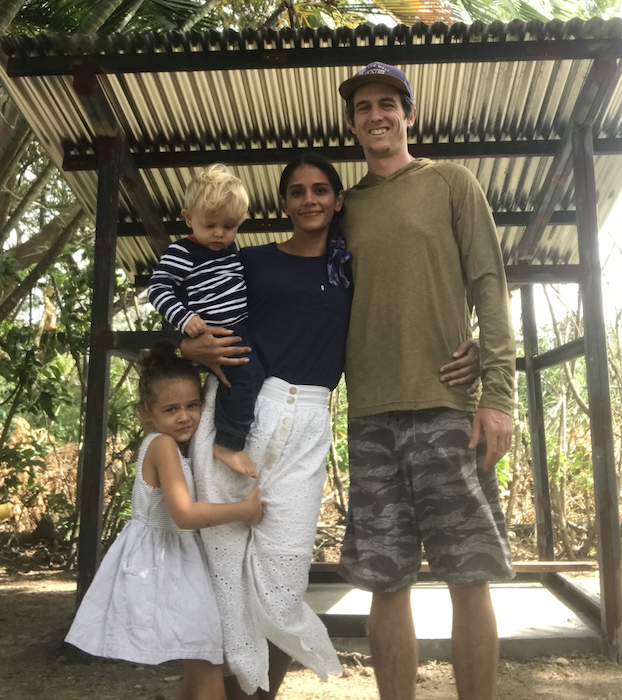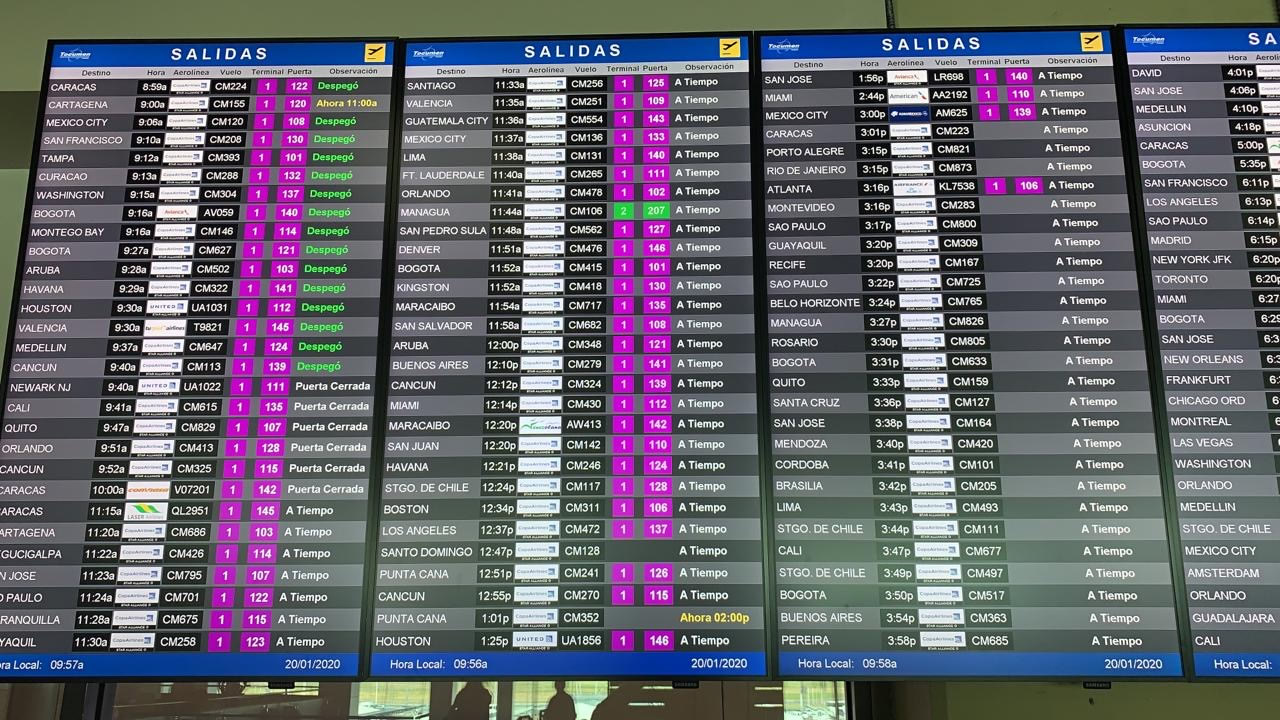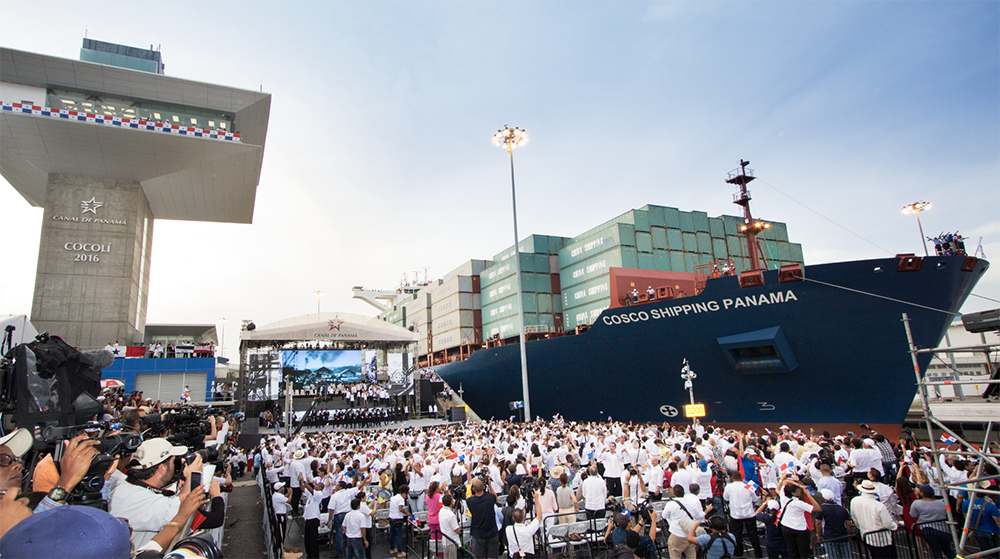For a while now, Panama has been an attractive destination for thousands of foreigners who see the positives of climate, landscapes, political and economic stability, and, of course, the great connectivity that the international airport offers. However, now, more than ever lifestyle seems to be one of the biggest draws to the country’s coastal communities like Coronado.
Kara Patrick and her husband Jeff, both Canadian-born expats moved to Panama 8 years ago. They are currently living in the pacific beach community of Coronado. She talked to Panama Living about their relocation to Panama.

“If I’m lucky, my day starts in the ocean. When the waves are not cooperating, a yoga class or walk with my family are my favorite ways to start the day” said Kara
Kara is the owner of the website Playacommunity.com which offers relevant information about the area and the country. Her husband is an entrepreneur who owns several of his own businesses and helps other foreigners with their relocation to Panama.
As Kara said: “Originally our plan was not to move to Panama, We were young and wanted to see where in the world we wanted to be. I had family here so I decided to visit and teach English for a year, eventually, it became my home base.
Kara continues: “Now that I have children of my own, Panama continues to be the best option for me and my family. The reason for this is that we can provide them with such a high quality of life here. Furthermore, it’s a short trip home, the kids get to see their grandparents, and we get to see our friends back home often.\
“Right now, Panama is the best option for me and my family. The reason is that we continue to enjoy a high quality of life here, even in a global pandemic.”
Kara Patrick
P.L.: Where are you? Originally from?
Kara Patrick: I’m Canadian and my husband is also Canadian, he was born in Quebec, but we both grew up in Toronto. We have both traveled a lot throughout our lives, Panama was the second place outside of Canada I have lived, the first place was Madrid. Before moving to Panama Jeff traveled through SouthEast Asia and Central America. Travel was always something very important to us both.
A home base in Panama meant that we could travel home often, and explore other destinations nearby.
But I think what’s really made it home is the fact that we can continue to work and grow a life here as foreigners. We are both here on the friendly nations visa, which has allowed us the option to obtain a work visa in Panama.
There are a lot of countries offering benefits like this all over the world. But Panama was one of the places that we explored early in life. We’re still exploring, so who knows where we might end up, but for now, this is where we want to be.
P.L.: What about your family? You mentioned you had family here.
K.P.: My aunt and uncle started to research places early in their retirement journey and Panama was one of the top retirement destinations that they fell upon about 13 years ago.
Within a year they moved from Panama City to Coronado and started their lives out here in Coronado.
In the first few years, they were part of a community of foreigners here in Coronado. Since those early years, Coronado has changed a lot. For one, it’s no longer just a retirement destination, it’s a developing community full of people starting families, investing, and opening businesses.
P.L.: How was the process of making the decision to come to Panama, trying to find your footing here, and get used to the new way of life here?
At the beach, things are much slower. So if you’re coming from the city, you have to get used to that. But, honestly, I’m more responsive to that lifestyle anyway, it’s more my pace here. When people ask me if I think they’ll like Panama, I tell them yes, If you’re open to things not happening as you want them to every day.
Were you married before you came here?
No, we weren’t, we went to University together. When we graduated, Jeff went to Indonesia and I went to Spain. Eventually, we ended up back together but living in different countries. I was in Panama and he was in Toronto, so we decided to make a list of the pros and cons of each country to decide where we would live.
He was making more money in Toronto, and while I had some ties here (in Panama) we decided Panama was going to be the best place to start a life together and grow a family. Especially since the lifestyle that we wanted for us and our kids was one that included, surfing, fishing, and a lot of time outdoors.
The weather was also a factor, in Canada, the winters can be grueling. Sometimes we miss the seasons, but we usually take a trip home at the end of summer or early fall.
What is a usual day for you down here?
Right now I am a full-time mom. So mornings including feeding the children, hens, cats, and our dog. My four-year-old takes the lead on most of it, with some supervision. After that, we do school (since school is still being taught virtually in Panama). My son who is one spends these first hours of the day with us or playing with our nanny outside. One of the perks of living in Panama for us is that we can afford a nanny, in Canada that would not have been attainable for us, at least not at this stage in our lives.
Our afternoons are either spent at the beach, in the pool, or in a nearby river. Of course, sometimes we work too! Right now we both work from home. I spend on average a couple of hours a day working on Playacommunity.com. My workday consists of creating things like our monthly newsletter, uploading the community tide tables, approving classified and real estate listings, and zoom calls or emails with community members and advertisers.
We usually end our day with a family walk after dinner. And of course a bedtime story! Without the interruption of travel, our days are more structured than ever. The silver lining is we’ve been fortunate to spend a whole year in one place without any distractions.
That time, without an upcoming trip, birthday party, school engagement, etc., etc. just would have never come for us. Now that we’ve had that pause, we’re committed to continuing to create it in years to come. Because believe it or not, sometimes it feels like you’re running on a hamster wheel even at the beach! It still takes a conscious effort to get off it, no matter where you’re standing.
How would you say this pandemic has affected or changed the approach of people living in your community?
Right now I don’t think there is not a single house in Coronado that is not occupied. In my opinion, anybody who had the ability to move (from the city) during this pandemic did.
Not just locals, but foreigners as well who live in the city. So the area is full, I think what’s yet to be seen is if people will move back.
But as people adapt to a “new normal” it’s possible that some things might stick. Zoom meetings and commuting might allow more people to make the move permanently.
I think one of the biggest barriers to this will be when kids go back to school. I feel families will be hard-pressed to change schools. But we will see.
Let’s talk about Playa Community. How would you describe it? What is it?
Playa Community is a website for the Coronado area and the surrounding beach communities. We share news (in English) that is relevant to people living in or looking to live in Panama.
We’re also a place for people to connect. Playa Community subscribers have access to our newsletter, community classifieds and real estate listings.
You can subscribe for free here It’s super easy!
The last part of Playa Community (the part that has kept me attached to the website for so long) is the tide table. Each year we publish the tides for the bay of Chame, and each year I get emails from the community, asking for them in advance. It’s a great resource for planning at which times you can access the beach here.
So would you say your demographic is probably older, like baby boomers?
Our goal is to reach anyone who is looking for information about relocating to Panama. For a long time that was probably primarily baby boomers, but I think that is starting to change.
Younger people are relocating to Coronado, Panama not only from Canada and the U.S. but from Panama City, Argentina, South Africa, and many more places around the world.
There are obviously still people retiring, and in normal times still snowbirds (those that come for the coldest winter months), but the community is growing into something beyond a retirement destination. I think it will just keep growing as long as people are looking to get out of the city, whatever city that may be. Until we become the city!
What advice would you give anybody considering moving to Panama?
My advice would be to do some research about the country, and visit before relocating. It sounds simple, but you’d be surprised at how many people move here and then realize it’s not for them.
Try a few different places in Panama, Coronado if you like the beach but still want to be close to the city, Boquete or Volcan for a cool mountain breeze, or Bocas del Toro if you’re looking for clear blue Caribbean waters. And that’s just to name a few places! The country is small, so you can check out a bunch of places in a single visit.
There are ups and downs to living anywhere. But those ups and downs can differ depending on where you are in the country. It really just depends on what is important to you. And sometimes it takes being on the ground to figure out what works for you, and what doesn’t.
If you know Panama, know what you’re looking for, and are ready to move, my advice would be to work with somebody in Panama who can do your due diligence for you.
Things that you love about Panama?
Well, there are a lot of things I love about Panama. But I think that the number one thing that I love about Panama is the life it allows us to live. There is less monotony. I can get up and I can surf if there are waves, I can go for a beach walk, I can play with my kids in the backyard. That freedom to me is priceless.
Another thing I love about the country is that there are still authentic experiences here. There are empty beaches, undiscovered hiking trails, waterfalls, and rural towns. If you’re really paying attention, around every corner there’s a new experience that isn’t being sold or marketed to you. Where else can you find that?
Has the language been a barrier?
I came with a basic knowledge of Spanish. But it was definitely a barrier at the beginning. I could handle the basics like groceries, ordering at a restaurant, etc. but it was tough making real connections. I learned Spanish quickly by fully immersing myself (kids are the best teachers, they have no problem laughing at your pronunciation, and correcting you).
I think it’s important to learn enough Spanish to make friends who are only Spanish speaking. Without these connections, I’m not sure I would be as happy here. This doesn’t mean your Spanish has to be perfect.
You just have to speak and be ok with saying it wrong. Find a friend who will correct you and you’ll learn fast. It’s not really a barrier if you’re willing to put in a little bit of work.





